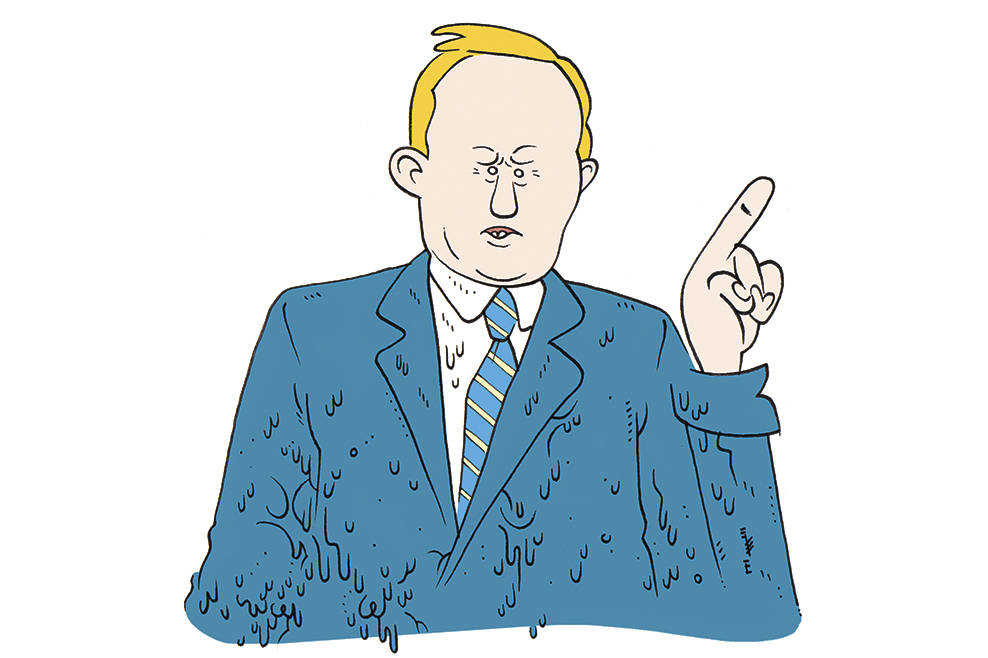In a move that did not surprise anyone who’s been paying attention, the Trump Administration has yet again issued conflicting statements—this time on cannabis, specifically on whether or not the government is gearing up to go after the quasi-legal recreational-cannabis community, now a multibillion-dollar industry nationwide.
Trump himself has flip-flopped on legalization since 1990. Back then he was in favor of fully legalizing the plant for medical and recreational use and funneling the resulting tax money into school systems. On the campaign trail, he first supported legalization, but as the campaign wore on, his stance became more conservative, especially on recreational use, noting “all the trouble” states like Colorado were having.
Cut to Thursday, when Sean “Spicy” Spicer dropped the biggest buzz-kill on the industry since Willie Nelson got audited. Spicer believes the new White House stance is—maybe—that the government is going to take a much tougher approach with the recreational-marijuana industry, since the stuff is still illegal on the federal level. I say maybe because just moments later, “Baghdad Sean” then stated that enforcement of the federal law would be up to the Department of Justice. Rolling papers sufficiently ruffled, the cannabis industry collectively freaked out over the weekend, with the Bloomberg Intelligence Global Cannabis Index reporting a 3.7 percent drop following Spicer’s press briefing.
The move would definitely go against public opinion. The latest Quinnipiac University poll found that 71 percent of voters think “the government should not enforce federal laws against marijuana in states that have legalized medical or recreational use.”
In a statement on Thursday, Washington State Attorney General Bob Ferguson said that he was “deeply disappointed” to hear Spicer’s comments. “My office will use every tool at our disposal to ensure that the federal government does not undermine Washington’s successful, unified system for regulating recreational and medical marijuana,” he said. His words were matched by politicians on both sides of the aisle across the country.
For now, medical users are still protected under the Rohrabacher-Farr Amendment, passed in 2014, barring the Department of Justice, which oversees the Drug Enforcement Administration, from interfering with the implementation of states’ medical-cannabis laws. But this protection is weak and temporary, with the DEA already having pressed the issue (and lost) in a case against a medical grow-op in California. And while Spicer did distinguish between medicinal and recreational use, he also suggested a link between rising opioid addiction and the rising use of cannabis, which runs contrary to the opinions of doctors and addiction specialists across the country. In fact, last year, a study published in JAMA Internal Medicine found a 25 percent drop in opioid overdose deaths in states with medical-cannabis laws on the books.
The “wait and see” spell was broken for cannabis-concerned politicians, and the response was “all hands on deck” with the birth of the Congressional Cannabis Caucus, a bipartisan political group created hours after the announcement, which received praise from groups like NORML, the Marijuana Policy Project, and the Drug Policy Alliance. While not stating any concrete plans for action, Oregon Democrat Rep. Earl Blumenauer stated, “Following the November election, federal laws are now out of step with 44 states. The time is now to come together and bring the federal government in line with the will of the American people.” If only we could get this kind of quick response out of our reps when it comes to clean water, police shootings, or a safe place to pee.
stashbox@seattleweekly.com







